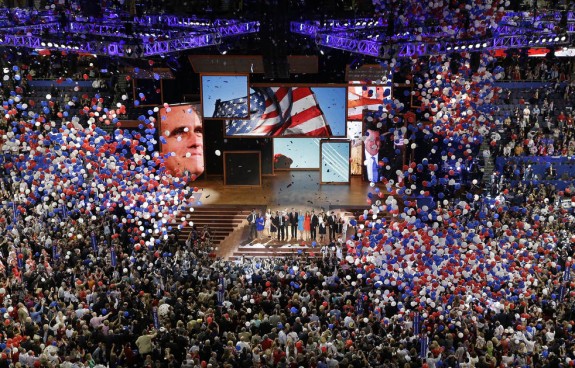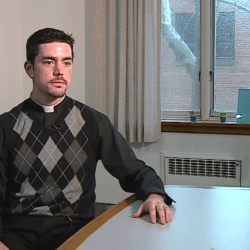As we enjoy some relative quiet between the two conventions (and a long holiday weekend!) now might be a good time to reacquaint ourselves with the Church’s teaching on clergy and their involvement in politics.
First, there are these remarks from Blessed John Paul II, titled “Priests Do Not Have a Political Mission”:
The Church still has her own task: proclaiming the Gospel, limiting herself to cooperating in her own way in the common good, without aiming at or accepting a political role.
In this light one can better understand what was decided by the 1971 Synod of Bishops regarding the priest’s conduct in political life. He certainly retains the right to have personal political opinions and to exercise his right to vote according to his conscience. As the Synod said: “In circumstances in which there legitimately exist different political, social and economic options, priests like all citizens have a right to make their own personal choices. But since political options are by nature contingent and never in an entirely adequate and perennial way interpret the Gospel, the priest, who is the witness of things to come, must keep a certain distance from any political office or involvement” (Ench. Vat., IV, 1195). In particular, he will keep in mind that a political party can never be identified with the truth of the Gospel, and therefore, unlike the Gospel, it can never become an object of absolute loyalty. Thus the presbyter will take this relativity into account, even when citizens of the Christian faith laudably form parties explicitly inspired by the Gospel. He must strive to shed the light of Christ on other parties and social groups too.
It should be added that the presbyter’s right to express his own personal choices is limited by the requirements of his priestly ministry. This limitation too can be an aspect of the poverty he is called to practice following Christ’s example. In fact, he can sometimes be obliged to abstain from exercising his own right so that he can be a strong sign of unity, and thus proclaim the Gospel in its fullness. Even more, he must avoid presenting his own choice as the only legitimate one, and within the Christian community, he should respect the maturity of the laity (cf. Ench. Vat., IV, 1196), and even work to help them achieve that maturity by forming their consciences (cf. Ench. Vat., IV, 1194). He will do what is possible to avoid making enemies by taking political stands that cause distrust and drive away the faithful entrusted to his pastoral mission.
The 1971 Synod of Bishops especially stressed that the presbyter must abstain from all political activism: “Leadership or active militancy on behalf of any political party is to be excluded by every priest unless, in concrete and exceptional circumstances, this is truly required by the good of the community, and receives the consent of the bishop after consultation with the presbyteral council and, if circumstances call for it, with the episcopal conference” (Ench. Vat., IV, 1197). Thus it is possible to derogate from the common norm, but this can be justified only in truly exceptional circumstances and requires due authorization.
In their generous service to the gospel ideal, some priests feel drawn to political involvement in order to help more effectively in reforming political life and in eliminating injustices, exploitation, and every type of oppression. The Church reminds them that on this road it is easy to be caught in partisan strife, with the risk of helping not to bring about the just world for which they long, but new and worse ways of exploiting poor people. In any case they must know that they have neither the mission nor the charism from above for this political involvement and activism.
There are also restrictions in U.S. law about clergy involvement in political campaigns, covering everything from endorsements to lobbying. It’s all spelled at the USCCB website.
Finally, there’s Canon Law, which states:
Can. 287 §1. Most especially, clerics are always to foster the peace and harmony based on justice which are to be observed among people.
§2. They are not to have an active part in political parties and in governing labor unions unless, in the judgment of competent ecclesiastical authority, the protection of the rights of the Church or the promotion of the common good requires it.
Can. 288 The prescripts of cann. ⇒ 284, ⇒ 285, §§3 and 4, ⇒ 286, and ⇒ 287, §2 do not bind permanent deacons unless particular law establishes otherwise.












